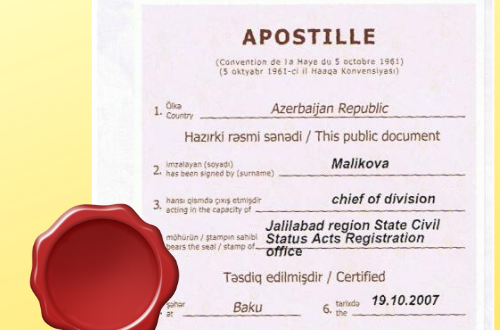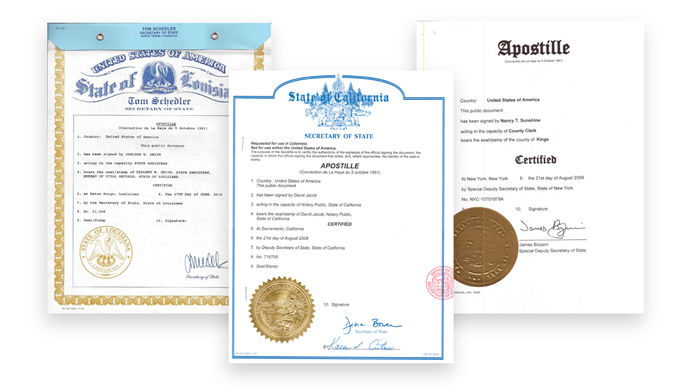Exploring the Reasons Behind the Compulsory Need of Apostille Certification for Legal Documents
In the world of legal documents, the necessary need of apostille qualification has actually come to be an essential aspect that significantly impacts the legitimacy and acknowledgment of legal documents on a worldwide scale. Understanding the rationale behind this requirement involves diving right into the complex web of legal intricacies, historic precedents, and international arrangements that highlight the significance of apostille certification in today's interconnected globe. By discovering the underlying reasons behind this widespread need, a more clear photo emerges of why this apparently administrative process holds such tremendous relevance for governments, people, and organizations alike.
Historic Evolution of Apostille Accreditation
How did the principle of apostille certification develop over time to end up being an important part of worldwide paper recognition? The demand for a simplified method of verifying papers for use across borders ended up being evident as global profession and traveling boosted.
At first adopted by a couple of European nations, the Apostille Convention progressively acquired global acceptance because of its effectiveness and efficiency in confirming the authenticity of main documents. For many years, the convention's reach increased as more nations signed up with, acknowledging the apostille as a generally accepted kind of record verification. Today, apostille certification has become a basic requirement for validating legal documents in international deals, making sure smooth communication and legal proceedings in between nations.
Simplifying International Paper Legalization
The streamlining of global document legalization procedures has actually significantly improved effectiveness in cross-border purchases. Streamlining the process of legalizing files for international use has actually ended up being vital in facilitating swift and seamless deals in between countries. One of the vital devices that have actually added to this simplification is the fostering of the Apostille Convention, which provides a standard approach for validating the authenticity of documents throughout getting involved countries.
By sticking to the Apostille requirements, nations agree to acknowledge each other's public documents as legitimate without the demand for more legalisation. This removes the prolonged and commonly difficult procedure of numerous authentications by different authorities, conserving time and sources for businesses and people participated in international activities.

Ensuring Paper Authenticity and Credibility
To ensure the authenticity and credibility of lawful files in global transactions, strict confirmation processes are necessary. By requiring apostille accreditation for legal documents, authorities intend to verify the beginning of records and verify the trademarks of people involved.
Moreover, validating the credibility of legal records with apostille accreditation boosts trust fund and self-confidence amongst celebrations engaging in global purchases. Eventually, by supporting rigorous confirmation requirements, apostille accreditation contributes to an extra clear and protected worldwide lawful structure.

Facilitating Cross-Border Legal Acknowledgment
In the world of worldwide transactions, the apostille qualification not just makes sure the authenticity and validity of lawful papers however also plays a crucial role in facilitating cross-border lawful acknowledgment (Houston Apostille). When legal documents bear an apostille certification, they are easily accepted by international authorities without the requirement for further confirmation. This streamlined procedure navigate to this website speeds up the recognition of documents in various countries, promoting efficiency and lowering administrative hurdles in lawful matters that go beyond national borders
Assisting in cross-border lawful acknowledgment through apostille accreditation promotes trust fund and confidence in the authenticity of records exchanged between nations. By sticking to the criteria established forth by the Apostille Convention, countries agree to honor the apostille seals affixed to files from other member countries, therefore streamlining the procedure of lawful recognition across boundaries.
Compliance With International Treaty Specifications
Compliance with international treaty criteria is imperative for making certain the consistent application of legal regulations throughout taking part nations. The Apostille Convention, developed in 1961, details the demands for the acceptance of public records among participant nations.
The Apostille accreditation, as mandated by the treaty, acts as an assurance of authenticity for papers such as birth certifications, marital relationship licenses, court judgments, and notarized deeds. This standardized approach helps protect against scams and makes sure that legal documents originating from one participant country are conveniently accepted in another. Additionally, by adhering to global treaty standards, countries demonstrate their dedication to upholding the concepts of transparency, depend on, and collaboration in lawful matters on a global range.
Verdict

In the realm of lawful documents, the necessary need of apostille qualification has ended up being a vital facet that significantly affects the credibility and acknowledgment of lawful documents on an international scale. Today, apostille certification has come to be a conventional need for confirming lawful documents in global transactions, ensuring smooth communication and legal proceedings between nations.
Furthermore, confirming the authenticity of legal files with apostille accreditation improves count on and confidence among celebrations engaging in worldwide transactions.In the realm of international purchases, the apostille qualification not just makes certain the credibility and credibility of legal files but also plays a pivotal duty in promoting cross-border lawful acknowledgment. By adhering to the standards established forth by the Apostille Convention, countries agree to recognize the apostille seals attached to documents from other member countries, thus streamlining the process of legal recognition across borders.